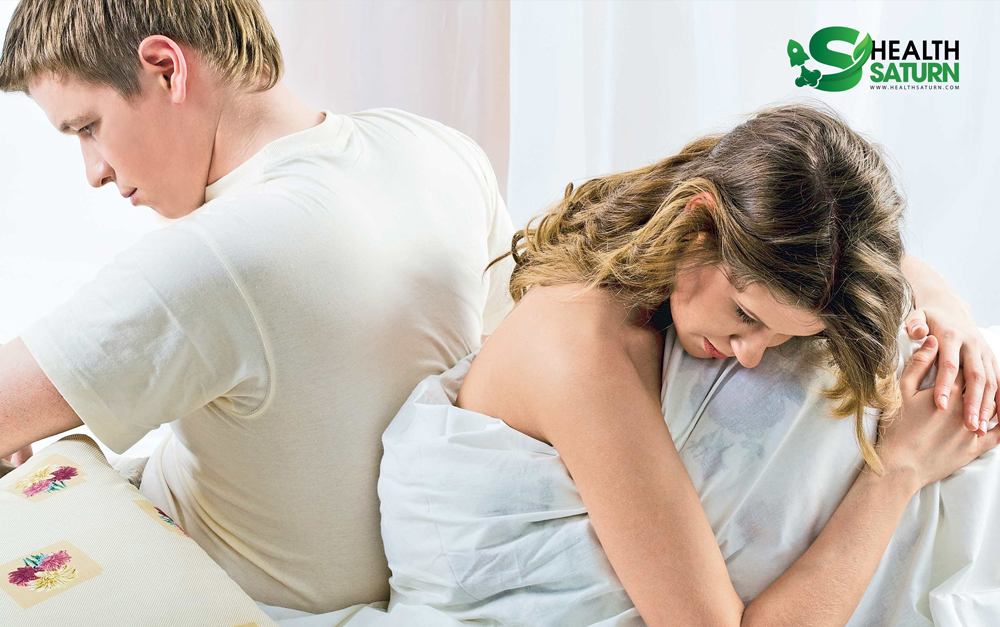Sexual performance anxiety is a type of performance anxiety that causes significant worry or fear before or during sexual activity. It’s common for people to feel nervous about sex, but when this anxiety becomes overwhelming and prevents you from performing sexually, it may be a case of sexual performance anxiety.
Although it can affect anyone, it is more frequently seen in men. If not addressed, sexual performance anxiety can lead to other sexual difficulties such as erectile dysfunction and may put strain on your relationship with your partner.
Fortunately, there are various methods available to manage and overcome sexual performance anxiety.
Symptoms of Sexual Performance Anxiety
Similar to other forms of performance anxiety, sexual performance anxiety can manifest both mentally and physically. Individuals with this condition often struggle with sex due to overwhelming negative thoughts or fears, which may arise either before or during intercourse. These thoughts may make it challenging to enjoy sexual activity.
Common symptoms in men include:
- Difficulty achieving or maintaining an erection.
- Premature or delayed ejaculation.
- Loss of sexual desire.
In women, symptoms may include:
- Trouble reaching orgasm.
- Vaginal dryness.
- Pain during intercourse.
Causes of Sexual Performance Anxiety
There are many factors that can contribute to sexual performance anxiety, often tied to personal or emotional concerns. Some possible causes include:
- Worrying about meeting your partner’s sexual expectations.
- Low self-esteem or negative body image.
- Negative past sexual experiences.
- Anxiety or fear stemming from sexual trauma.
When anxiety or stress increases, your body produces more cortisol, a stress hormone that can lower testosterone levels. This drop in testosterone can reduce sexual desire, and in men, it may contribute to erectile dysfunction.
How Sexual Performance Anxiety Affects Relationships
Sexual performance anxiety can create distance in romantic relationships. Research suggests that couples who maintain regular sexual activity tend to feel more connected and have stronger relationships. When sex becomes difficult or absent, your partner may feel unwanted or unloved, which can damage the emotional bond between you.
How to Cope with Sexual Performance Anxiety
Identifying your anxiety triggers and finding ways to relax can greatly improve your ability to manage the negative thoughts affecting your sexual performance. Some coping strategies include:
- Mindfulness meditation: This practice can help you become more aware of your thoughts and feelings related to sex.
- Yoga: Yoga can help reduce stress and improve your connection between mind and body.
- Self-exploration: Masturbation can help you understand what brings you pleasure and what sensations you experience during sex.
- Sex therapy: A therapist can help you address the thoughts and emotions that lead to performance anxiety.
Open communication with your partner can also help reduce sexual performance anxiety. Being honest about your struggles may help your partner understand the situation better and offer support.
When to See a Healthcare Professional
If sexual performance anxiety is significantly impacting your relationships or quality of life, it’s time to seek professional help. A healthcare provider can refer you to a qualified sex therapist, psychologist, or psychiatrist for further support.
Certain symptoms might indicate a deeper issue, such as sexual dysfunction. If sexual problems persist for several months, a visit to your doctor is recommended to rule out any underlying conditions.
Common symptoms that require medical attention include:
- Premature ejaculation.
- Delayed ejaculation.
- Erectile dysfunction.
- Lack of interest in sex.
- Vaginal dryness or pain during intercourse.
- Inability to reach orgasm.
Treating Sexual Performance Anxiety
Treatment for sexual performance anxiety often depends on its cause, and it usually involves therapy, medication, or a combination of both.
- Cognitive Behavioral Therapy (CBT): This form of therapy helps individuals reshape negative thoughts surrounding sex, creating more positive and realistic expectations.
- Couples Therapy: This approach encourages open communication between partners and addresses the emotional issues contributing to sexual anxiety.
- Medication: Erectile dysfunction medications, such as Viagra, may help men who struggle with maintaining an erection due to anxiety.
Summary
Sexual performance anxiety can have a significant impact on both your sex life and your relationship. By openly discussing the issue with your partner and seeking support from a healthcare provider, you can find effective solutions. Therapy and, in some cases, medication can offer relief and help you regain confidence in your sexual performance.


